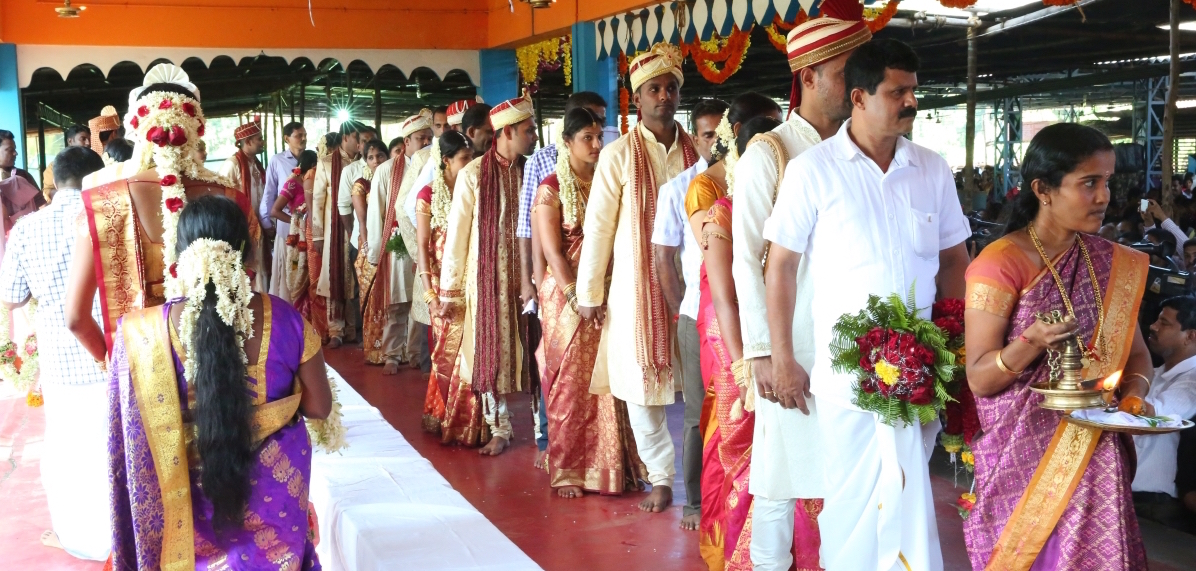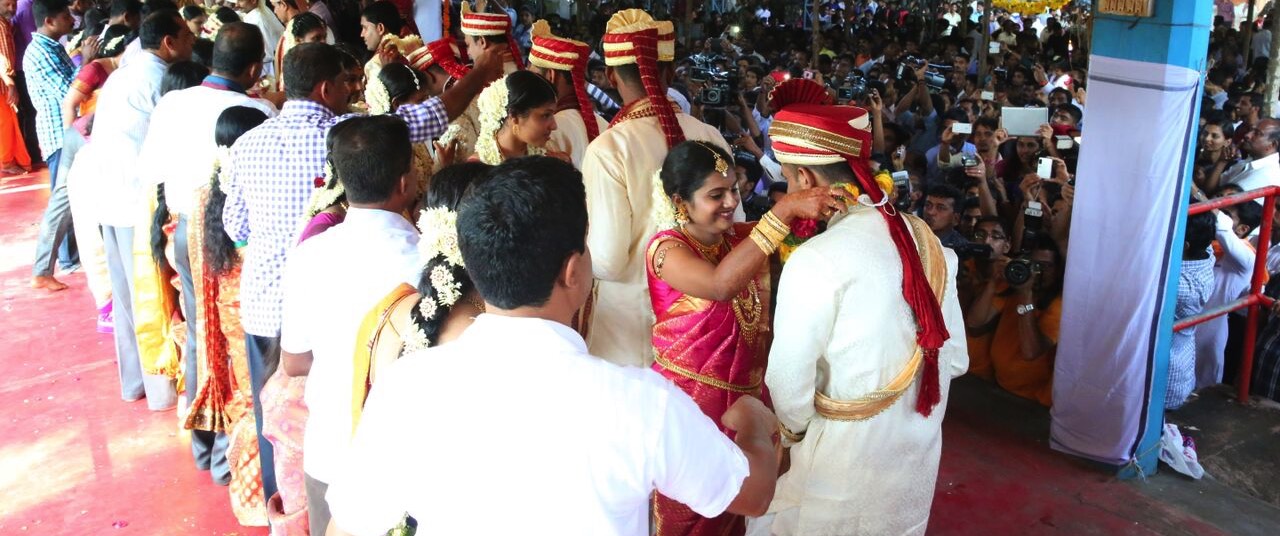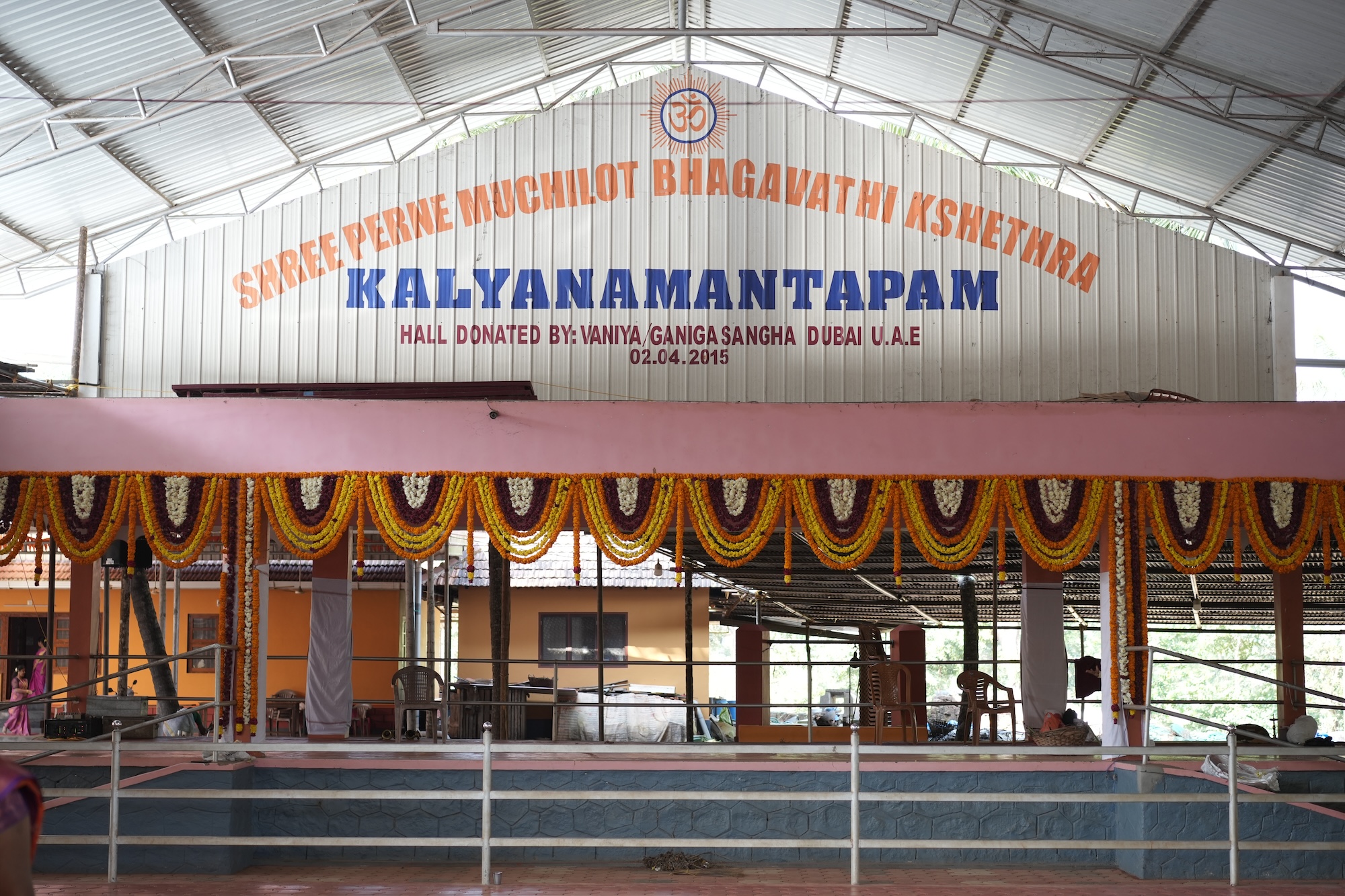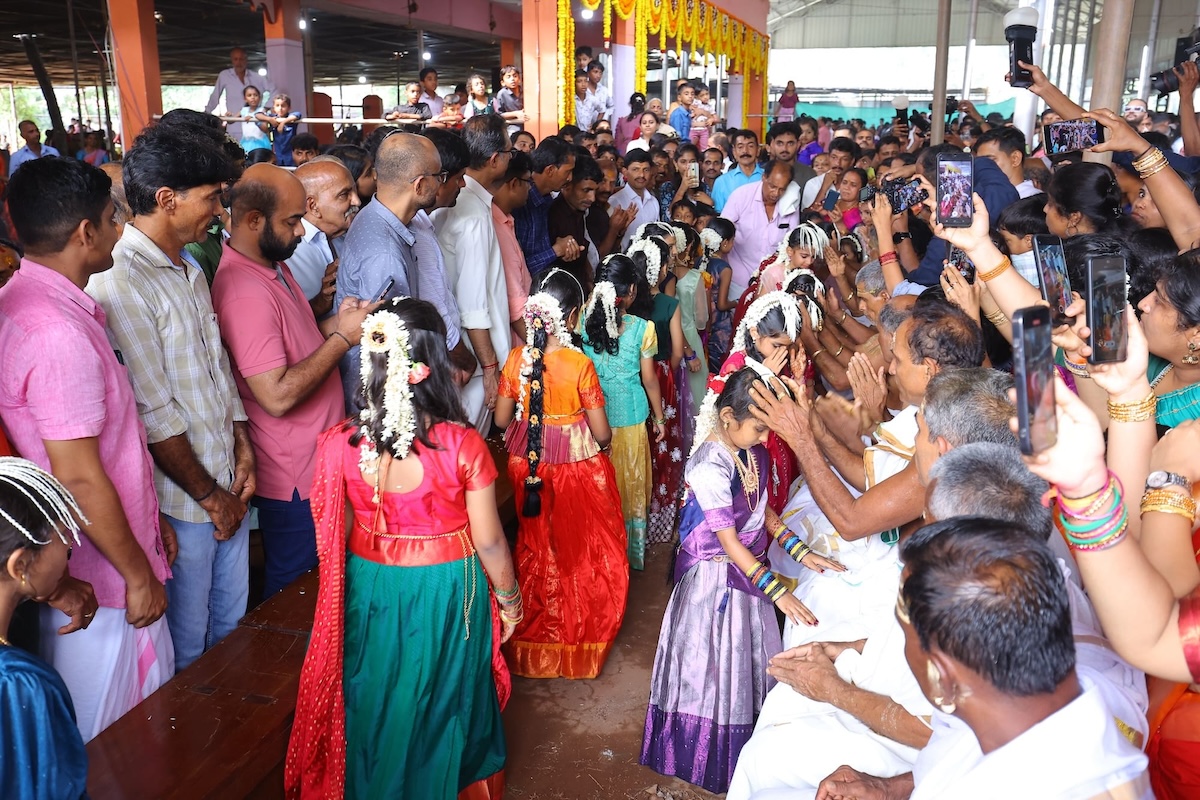
Marriage is generally a complex process. Indian marriages are observed for their vibrancy in clothing, variety in food, and high cost. They involve many customs and rituals lasting more than 2 days and costing up to 8-10 lakhs for an ordinary marriage. Meeting these high standards set by society becomes impossible for a common man.
"Simplicity is the ultimate sophistication." A typical marriage of Vaniya/Ganiga's at Perne, in the presence of goddess Bhagavathi, is a true celebration of simplicity and equality. Marked by simplicity in clothing, food, and simple rituals, this marriage is economically and socially well respected. Marriages are held twice a year, during the "Pooram" and "Udayastamanam" festivals. Couples are required to enter into wedlock only at a temple, coming from Kasaragod, Dakshina Kannada, and parts of Kodagu. Nearly 50-70 couples get married every year.
The process of marriage takes a simple route. Initially, uncles of the bride and the bridegroom come together and share auspicious words along with the Acchamar and Karnavamar, who will be seated alongside the Kalyana Mantapam. Here they register the names of couples by paying a nominal fee (Thiriyammande Panam) prescribed by the temple. After this, the mother and three or four women close relatives of the bridegroom present a sari, blouse, and a bunch of jasmine flowers to the bride. The bride's mother receives them. This custom is known as "Poduvakodukkal". The bride should wear this sari for the wedding.
The brother-in-law of the bridegroom guides him to the Achanmar with a gold chain. An Acchan ties this gold chain to the bridegroom and blesses him. The significance of this ritual is essentially permitting the boy to marry the girl who is morally under his custody. The main Acchan is the true representation of Tamburati. After that, the bridegroom is taken to a barber for a shave and later, he takes a bath. The bridegroom will be dressed traditionally.

In the mantapam, the seats are arranged for at least fifteen couples to sit together at a time. The Kalyanams are performed batchwise. A Mangalavathi woman from the Pandarapura will hold a hanging lamp in her right hand and a harivana (brass plate) full of rice in the left hand, stands first in the row followed by the couples. Each bridegroom's brother-in-law holds the left hand of the groom and takes him to the procession. The bride stands behind the groom and holds the end of the groom's shawl and walks in the procession. They take three rounds (Pandal Cholunnuded) before they are asked to be seated.
Then, couples exchange garlands. Interestingly, there is no practice of tying Mangalasutra. Then, acchanmar and family members bless them by sprinkling rice. Finally, couples will be taken to Pandarapura in the same order of their arrival. Thus, the simple and fulfilling marriage comes to an end, and people head back to their homes with the blessing of Muchilotamma and happy hearts to see the union of many hearts.



The hand that rocks the cradle, the procreator, the mother of tomorrow; a woman shapes the destiny of civilization. In Perne, each girl child is valued and respected. The practice of 'Pandal mankalam' takes place before community marriage. This has to take place before the girl reaches puberty. After this marriage, the girl gets the status of a woman in the community. Pandal Mangalam should not be arranged at home; it is strictly done at the temple where the pandal is arranged.
In "Pandal," the Acchanmar and Karnavanmar sit according to their rank. The mothers of the girls or mother-in-laws bring their girl, well-dressed in front of Acchanmar. The mother brings a gold chain and a pookula (a bunch of areca nut flower). The Komara of Bhagavathi Devi ties the gold chain to the girl's neck and puts the pookula on her neck and blesses her. The gold chain is equal to the Mangalasutra; tying that means she is dedicated to Tamburati, and she will be protected by the community. Later when this girl gets married, there is no practice of tying Mangalasutra in Kalyana Mantapam.